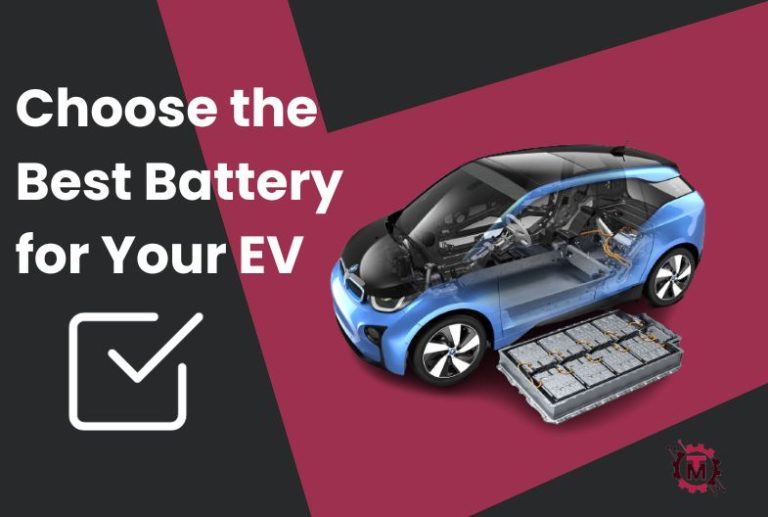We are living in the age of technology, and automation is going through a slide sift with the rise of electric vehicles (EVs). These EVs are showing us a promising and greener future for our planet Earth. One of the most critical components that determine the future of electric vehicles is their batteries. You should understand that choosing the right battery for your vehicle is like choosing its heart. Therefore, ensure that it would have to dictate range, performance, and overall longevity.
In this article, we will delve into the key factors to consider when choosing an EV battery for your car.
What is an EV?
EV stands for “Electric Vehicle.” An electric vehicle is a type of vehicle that uses one or more electric motors for propulsion. Mostly, they rely on electricity stored in batteries or another energy storage device. Unlike traditional internal combustion engine vehicles that use gasoline or diesel to power engines, they use electricity to generate energy.
How to Select the Best Battery for Your EV
It is essential to understand the importance of batteries for your EV to make the most out of them. Here, you will get to know some tactics to decide which battery you should choose:
Understanding Battery Types
You should keep in mind that not all batteries are created equal. Different EVs use various types of batteries, each with its advantages and drawbacks. Here are some of them:
- Lithium-Ion (Li-ion): The high energy density, long cycle life, and low self-discharge rate of the best EV battery type. However, Li-ion is not homogeneous and has different varieties, including Nickel Cobalt Manganese, Lithium Iron Phosphate, and Lithium Nickel Cobalt Aluminum Oxide. There are pros and cons associated with each battery type or variation.
- Solid-State Batteries: These new batteries show much higher energy density and improved safety when compared to conventional Li-ION ones. Nevertheless, they are still in the infant steps of commercialization and will ultimately be unleashed to the general population.
- Nickel-Metal Hydride (NiMH): Common in hybrid vehicles, NiMH batteries offer good energy density and are known for their durability. Nevertheless, they are heavier and less energy-dense compared to Li-ion-type batteries.
Consider Range and Charging Speed
The range of an EV, or how far an EV travels on a single charge, is crucial for potential buyers. Battery capacity, measured in kilowatt-hours (kWh), directly influences range. Higher capacity batteries generally provide extended ranges but come with trade-offs such as increased weight and cost.
In addition, consider the charging speed of the battery. Faster charging batteries, when paired with a compatible charging infrastructure, may influentially reduce the downtime associated with charging. The emerging standard for fast charging is the CCS (Combined Charging System) and CHAdeMO, with Level 3 chargers. This is capable of delivering a substantial charge in a short period of time.
Battery Life and Degradation
The longevity of an EV battery is a critical consideration for cost-effectiveness. Over time, all batteries experience degradation that results in a reduced capacity and range of the battery. Manufacturers often provide a warranty that confirms a minimum capacity after a certain number of years or charge cycles.
It is essential to comprehend that understanding the degradation rate is crucial. Li-ion batteries generally degrade less than 1% per year. However, this can vary based on temperature, charging habits, and the specific battery chemistry.

Weight and Size Matters
The weight and size of the battery directly impact the overall weight and space utilization of the vehicle. While a higher-capacity battery may offer a more extended range, it also adds weight, affecting the car’s efficiency and handling.
You need to consider the balance between range and weight. Especially if you prioritize efficiency or need a smaller, more agile vehicle for urban driving. In this way, you will get a comfortable drive over every road.
Temperature Sensitivity
Batteries are sensitive to temperature extremes, and their performance may be affected by both hot and cold conditions of weather. Extreme temperatures can accelerate degradation, impacting the overall lifespan of the battery.
Look for EVs equipped with thermal management systems that help regulate the temperature of the battery. This makes sure optimal performance and extends the life of the battery. In this way, you can increase the battery life of your battery and go the extra mile on your EV.
Cost Considerations
The cost of EV batteries is an important factor influencing the overall price of the vehicle. While battery costs have been decreasing steadily, they still represent a substantial portion of an EV’s price. Government incentives and rebates help offset this cost, making EVs more accessible to the general public.
You must consider the total cost of ownership, factoring in potential savings on fuel and maintenance costs over the lifespan of the vehicle. This will provide a more accurate picture of the economic viability of your EV choice.
Manufacturer Reputation and Support
The reputation of the EV manufacturer and the battery supplier is a critical consideration. You need to establish manufacturers with a track record of producing reliable batteries to instill confidence in the consumer. Research customer reviews and the manufacturer’s history in battery technology to gauge their reliability and commitment to customer support. In this way, you are able to make influential batteries that have considerable life and productivity.
Conclusion
Choosing the best battery for your electric vehicle involves a careful balance of factors such as range and charging speed. Moreover, this procedure involves battery life, weight, temperature sensitivity, cost, and manufacturer reputation. As technology continues to advance, the terrain of EV batteries will evolve, offering consumers even more options and improvements.
Finally, choosing an EV battery relies on personal choices as well as personal requirements when it comes to driving habits or needs. However, you have to consider these issues as well as watch out for upcoming news on batteries so that you are able to select wisely. This may align with your environmental values and practical needs for a reliable, efficient, and enjoyable electric driving experience.


